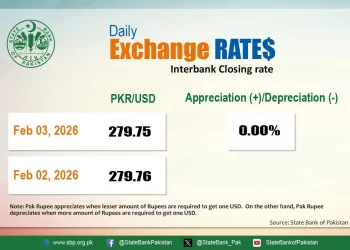HOUSTON: Oil prices slipped on Friday and were bound for a weekly loss as investors digested waning Chinese demand and a possible slowing of the U.S. Federal Reserve’s interest rate cut path.
Brent crude futures dropped 71 cents, or 0.98%, to $71.85 a barrel by 10:32 a.m. EDT. U.S. West Texas Intermediate crude futures were down 72 cents, or 1.05%, at $67.98.
For the week, Brent is set to fall 2.9% while WTI is set to decline 3.6%.
China’s oil refiners in October processed 4.6% less crude than a year earlier because of plant closures and reduced operating rates at smaller independent refiners, data from the National Bureau of Statistics showed on Friday.
The country’s factory output growth slowed last month and demand woes in its property sector showed few signs of abating, adding to investors’ concerns over the economic health of the world’s largest crude importer.
“The headwinds out of China are persisting, and whatever stimulus they put forward could be damaged by a new round of tariffs by the Trump administration,” said John Kilduff, partner at Again Capital in New York.
Oil prices largely steady
U.S. President-elect Donald Trump has pledged to end China’s most-favored-nation trading status and impose tariffs on Chinese imports in excess of 60% – much higher than those imposed during his first term.
Elsewhere, U.S. retail sales increased slightly more than expected in October, suggesting the economy kicked off the fourth quarter on a strong note.
“The economic data this morning was strong and notable so that is keeping things somewhat stable with regard to what the U.S. demand picture should be,” Again Capital’s Kilduff said.
The report on Friday was accompanied by sharp upward revisions to September’s data, which together with news of a rebound in import prices last month prompted traders to pare back expectations that the Federal Reserve would cut interest rates in December.
Speaking on Thursday, Fed chair Jerome Powell said the U.S. central bank did not need to rush to lower interest rates. Lower interest rates typically spur economic growth, aiding fuel demand.
Oil prices also fell this week as major forecasters indicated slowing global demand growth.
“Global oil demand is getting weaker,” said International Energy Agency (IEA) Executive Director Fatih Birol on Friday at the COP29 summit.
“We have been seeing this for some time and this is mainly driven by the slowing Chinese economic growth and the increasing
penetration of electric cars around the world.”
The IEA forecasts global oil supply to exceed demand by more
than 1 million bpd in 2025 even if cuts remain in place from
OPEC+.
OPEC meanwhile cut its forecast for global oil demand growth
for this year and 2025, highlighting weakness in China, India
and other regions.
Providing a floor to the price declines, U.S. gasoline
stocks fell by 4.4 million barrels last week to the lowest since
November 2022, the Energy Information Administration said,
outweighing a 2.1 million barrel crude oil stockbuild.
“Without the weekly statistics on U.S. oil inventories the
major oil contracts would have probably settled lower (on
Thursday). Gasoline supported the whole complex,” PVM analyst
Tamas Varga said.









